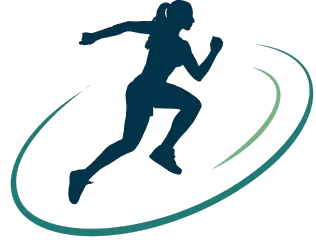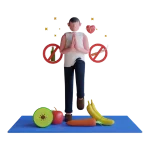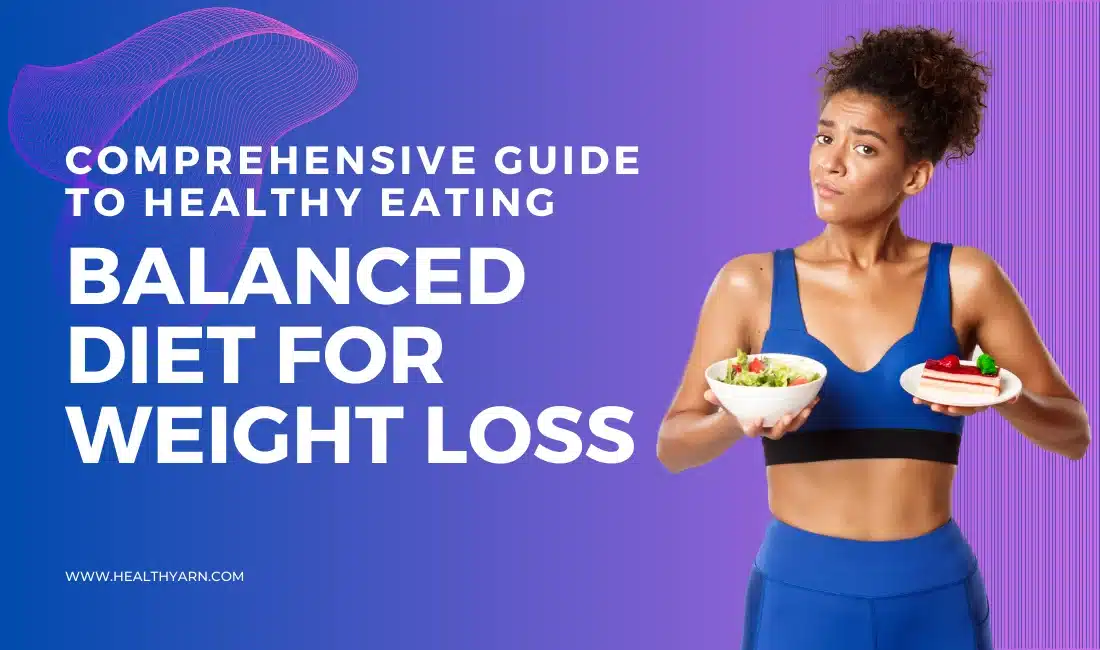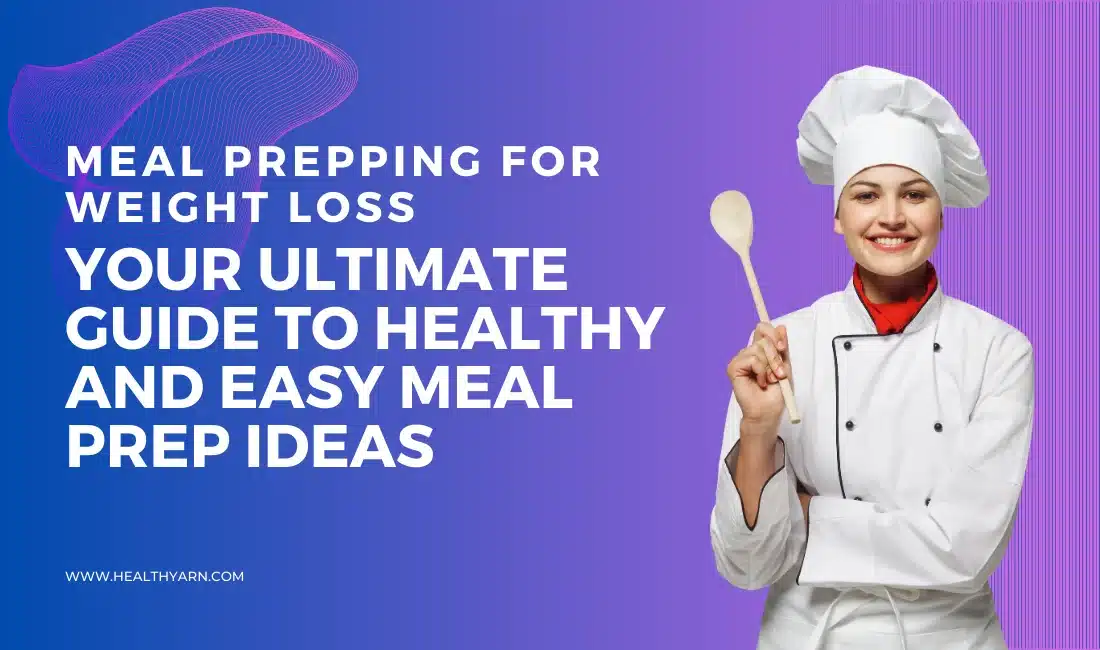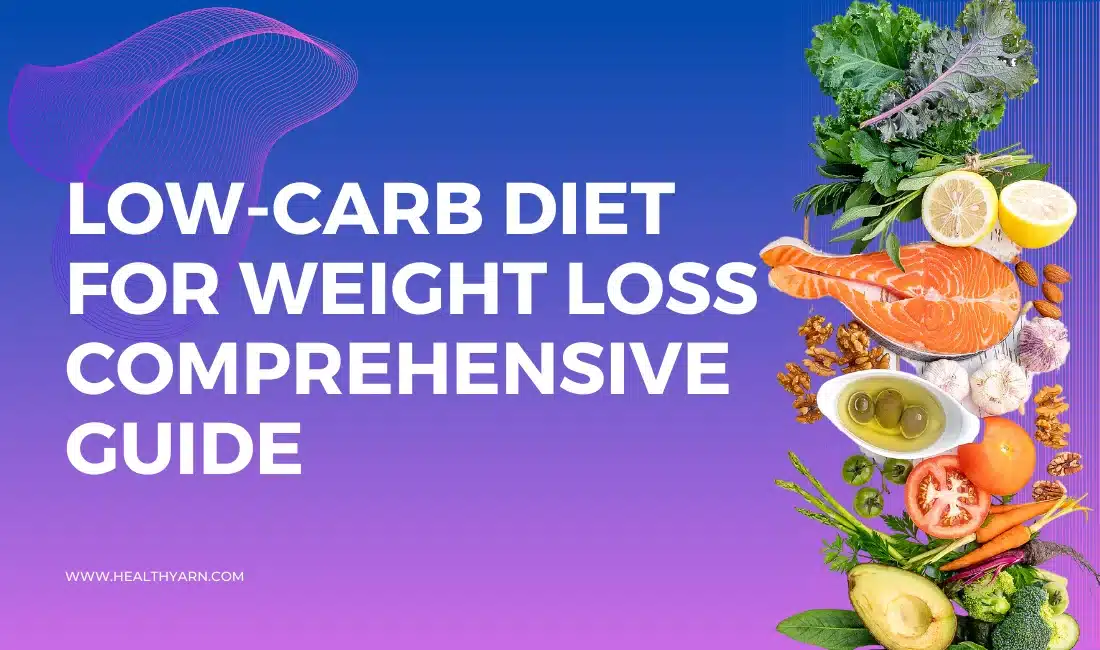The Ultimate Weight Loss Diet Plan To Achieving Your Goals
Introduction to The Ultimate Weight Loss Diet Plan
In today’s fast-paced world, weight loss has become a common goal for many individuals striving for a healthier lifestyle. A well-designed diet plan plays a crucial role in achieving weight loss and maintaining optimal health. In this article, we will explore the concept of the ultimate weight loss diet plan, highlighting its importance and providing valuable insights into creating a plan that suits your needs and preferences.
Factors to Consider When Creating a Weight Loss Diet Plan
Before embarking on any weight loss journey, it is important to set realistic goals. Rather than aiming for rapid and unsustainable weight loss, it is essential to focus on steady progress and long-term success. Assessing your current eating habits and lifestyle is another critical step. Understanding your food choices, portion sizes, and daily activity levels will enable you to make informed decisions about your diet plan. Additionally, identifying any dietary restrictions or preferences is necessary to tailor the plan to your specific needs.
Essential Components of the Ultimate Weight Loss Diet Plan
A well-rounded weight loss diet plan incorporates various essential components to promote sustainable results and overall well-being. Let’s delve into each of these components in detail:
Emphasizing Whole, Unprocessed Foods
One of the fundamental principles of a successful weight loss diet plan is focusing on whole, unprocessed foods. These foods are packed with essential nutrients, fiber, and antioxidants, while being low in added sugars, unhealthy fats, and artificial additives. By replacing processed snacks and meals with fresh fruits, vegetables, lean proteins, and whole grains, you can fuel your body with the nutrients it needs, support healthy metabolism, and achieve your weight loss goals.
Balancing Macronutrients (Carbohydrates, Proteins, Fats)
Balancing macronutrients, namely carbohydrates, proteins, and fats, is crucial for a well-designed weight loss diet plan. Each macronutrient plays a unique role in the body, and obtaining the right balance is key. Carbohydrates provide energy, proteins support muscle growth and repair, while healthy fats promote satiety and aid in nutrient absorption. By incorporating a balanced mix of these macronutrients into your meals, you can optimize your body’s functions and achieve sustainable weight loss.
Incorporating Fruits and Vegetables
Fruits and vegetables are essential for a healthy weight loss diet plan. They are low in calories, high in fiber, and rich in vitamins, minerals, and antioxidants. These nutrient powerhouses not only aid in weight management but also contribute to overall health and well-being. By including a variety of colorful fruits and vegetables in your meals and snacks, you can enhance the nutritional value of your diet plan and make it more enjoyable.
Managing Portion Sizes
Portion control plays a vital role in any weight loss journey. It’s easy to overeat, especially when faced with larger portions or tempting treats. By practicing portion control, you can regulate your calorie intake and prevent mindless eating. Utilize smaller plates, measure your food portions, and listen to your body’s hunger and fullness cues. Being mindful of portion sizes will enable you to create a sustainable calorie deficit and achieve your weight loss goals.
Limiting Refined Sugars and Unhealthy Fats
To optimize weight loss, it is important to limit the consumption of refined sugars and unhealthy fats. Refined sugars, often found in processed sweets, sugary beverages, and desserts, provide empty calories and can lead to energy crashes and weight gain. Similarly, unhealthy fats, such as trans fats and saturated fats, found in fried foods and high-fat dairy products, can negatively impact your health and weight loss progress. Choosing healthier alternatives, such as natural sweeteners and sources of unsaturated fats, will contribute to your overall success.
Tips for Effective Meal Planning and Portion Control
Creating a meal plan is an excellent strategy to stay on track with your weight loss goals. Consider the following tips to optimize your meal planning and portion control:
Creating a Weekly Meal Plan
Planning your meals in advance helps you make healthier choices and prevents impulsive, unhealthy food decisions. Dedicate some time each week to create a meal plan that includes a variety of nutritious, well-balanced meals and snacks. This way, you’ll have a clear roadmap to follow and reduce the likelihood of resorting to unhealthy options.
Including a Variety of Nutrient-Dense Foods
When meal planning, aim to include a wide range of nutrient-dense foods. These include lean proteins, whole grains, legumes, fruits, vegetables, and healthy fats. Incorporating different flavors, textures, and colors not only adds excitement to your meals but also ensures you obtain a diverse array of essential nutrients.
Preparing Meals in Advance
Meal prepping is an effective technique for saving time, minimizing stress, and maintaining portion control. Consider batch cooking on weekends or whenever you have free time. Prepare larger quantities of healthy meals and portion them into individual containers. This way, you’ll have ready-to-eat, portion-controlled meals throughout the week, preventing impulsive food choices when time is limited.
Using Portion Control Techniques
Portion control techniques can help you regulate your calorie intake and prevent overeating. Use measuring cups, spoons, and kitchen scales to accurately measure your food portions. Additionally, familiarize yourself with visual cues for portion sizes, such as a palm-sized portion of lean protein, a fist-sized portion of carbohydrates, and a thumb-sized portion of healthy fats.
Incorporating Exercise and Physical Activity
While a well-designed diet plan is crucial for weight loss, incorporating exercise and physical activity is equally important. Exercise not only burns calories but also boosts metabolism, improves cardiovascular health, and enhances mood. Consider the following recommendations for successful integration of exercise into your weight loss journey:
Discussing the Benefits of Exercise for Weight Loss
Regular physical activity contributes to weight loss by increasing energy expenditure and building lean muscle mass. Engaging in aerobic exercises, such as jogging, swimming, or cycling, helps burn calories, while strength training exercises, such as weightlifting, promote muscle growth and increased metabolism. Discussing the benefits of exercise with your healthcare provider or a qualified fitness professional can guide you towards suitable activities for your fitness level.
Recommending Suitable Exercises for Different Fitness Levels
It’s essential to choose exercises that align with your current fitness level and preferences. If you’re a beginner, start with low-impact activities like walking or gentle yoga, gradually progressing to more intense workouts. If you have any underlying health conditions, consult your healthcare provider for guidance on suitable exercises. Remember, the key is to find activities that you enjoy and can sustain in the long run.
Suggesting Ways to Stay Motivated and Consistent
Maintaining motivation and consistency are crucial factors for successful weight loss. Find strategies that work for you, such as setting achievable goals, tracking your progress, rewarding yourself for milestones, and finding an exercise buddy or support group. Experiment with different activities to keep your workouts engaging and enjoyable. Remember, consistency is key, and even small steps towards your fitness goals can yield significant results.
The Role of Hydration and Water Intake
Hydration is often overlooked but plays a significant role in weight loss and overall health. Water helps regulate body temperature, aids digestion, and supports numerous bodily functions. Consider the following tips to ensure optimal hydration throughout the day:
Highlighting the Importance of Water for Weight Loss
Drinking an adequate amount of water can aid in weight loss by promoting satiety, boosting metabolism, and reducing fluid retention. Make it a habit to drink water before meals to help control your appetite. Replace sugary beverages with water or unsweetened herbal teas to reduce calorie intake and stay properly hydrated.
Providing Tips for Staying Hydrated Throughout the Day
Carry a reusable water bottle with you wherever you go to encourage regular water intake. Set reminders or use smartphone apps to track your water consumption. Additionally, incorporate water-rich foods into your diet, such as cucumbers, watermelon, and leafy greens, to supplement your hydration efforts.
Overcoming Common Challenges in Following the Diet Plan
Following a weight loss diet plan can sometimes pose challenges. Here are some strategies to overcome common obstacles and stay on track:
Dealing with Cravings and Emotional Eating
Cravings and emotional eating are common hurdles in weight loss journeys. Implement mindful eating techniques, such as paying attention to physical hunger cues and identifying emotional triggers for overeating. Find healthy alternatives to satisfy cravings, like a piece of dark chocolate or a small serving of fruit. Seek support from a registered dietitian or therapist to address emotional eating patterns.
Managing Social Situations and Dining Out
Social situations and dining out can present challenges to your weight loss efforts. Plan ahead by reviewing menus and selecting healthier options in advance. Practice portion control by sharing meals or asking for a takeout container to pack leftovers. Focus on enjoying the company and conversation rather than solely on the food.
Finding Support and Accountability
Having support and accountability can significantly increase your chances of success. Seek out like-minded individuals who share your goals, join online communities or local support groups, or consider working with a registered dietitian or weight loss coach. Having someone to share your challenges, progress, and achievements with can provide motivation and encouragement.
Promoting a Balanced Lifestyle Beyond the Diet Plan
While the ultimate weight loss diet plan is essential, promoting a balanced lifestyle is equally important for long-term success. Consider the following aspects:
Encouraging Long-Term Healthy Habits
Instead of viewing weight loss as a temporary endeavor, focus on adopting sustainable, healthy habits. Embrace regular physical activity, prioritize sleep, manage stress effectively, and incorporate relaxation techniques into your daily routine. Cultivating these habits will support overall well-being and prevent weight regain.
Stressing the Importance of Self-Care and Mental Well-being
Self-care and mental well-being are vital components of a balanced lifestyle. Take time for yourself, engage in activities that bring you joy, practice mindfulness or meditation, and seek professional help if needed. Prioritizing mental health supports your weight loss journey by reducing stress, emotional eating, and promoting a positive mindset.
Conclusion
Creating the ultimate weight loss diet plan requires careful consideration of various factors, including realistic goal-setting, current eating habits and lifestyle assessment, and identification of dietary restrictions and preferences. Emphasizing whole, unprocessed foods, balancing macronutrients, incorporating fruits and vegetables, managing portion sizes, and limiting refined sugars and unhealthy fats are essential components of an effective plan. Effective meal planning, exercise, hydration, overcoming common challenges, and promoting a balanced lifestyle contribute to long-term success. Take action today and design your own ultimate weight loss diet plan to achieve your goals and improve your overall well-being.
